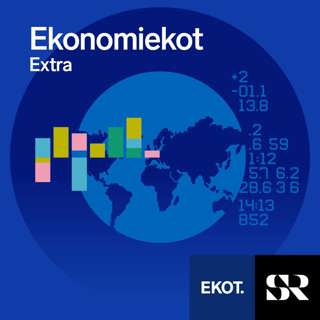
98: 3 Phrases to Annoy An Interviewer
There are three phrases which create trouble in an interview: "I think that…" and "In my opinion…" and "But, if I look at my friends…" Not only are they defensive, and arrogant, they are also clear indicators where you are struggling in a case interview. When you use them in the wrong context, as explained in this podcast, they will make it difficult to pass the case.
14 Okt 201210min

97: Using Podcast Feedback
We produce a significant amount of podcasts with information on case interviews, PEI, FIT, brainstorming techniques etc. This information can be overwhelming and hard to prioritize for the typical listener. This podcast offers some helpful suggestions on how to use the feedback.
8 Okt 20127min

96: Estimation Cases Should Ideally Be Imprecise
Many candidates are obsessed with generating correct answers in estimations they must make within cases or standalone estimation cases. This is a poor strategy. By obsessing about the final answer in a McKinsey estimation case, they ignore the structure of the estimation case which is far more important and forget why an estimation case exists in the first place - to test the ability to generate an answer with imperfect information. Listeners are strongly advised, as well, to ignore speed at the beginning and focus on good case technique.
2 Okt 20127min

95: Stressful Interview Situations
This podcast examines the typical tell-tale signs candidates show when placed under stress in a case interview and offers suggestions on how to manage these situations. The key to managing this problem is not to reduce the stress, which may be impossible to do, but to change the way you show your stress. We also provide anecdotes on how our own clients manage, or struggle to manage, stress in their practice cases and interviews.
26 Sep 201216min

94: Consulting Rejections Are Not Equal All The Time
Being rejected from McKinsey and BCG is humbling, painful and possibly expensive exercise. The key is to carefully review your feedback since not all rejections are equal. Two people getting the same feedback must interpret them in vastly different ways: an MIT math PhD and Brown Arts undergrad both failing the PST (it has happened) need to take very different next steps from this outcome. Therefore, your unique profile must determine how you will interpret feedback. This podcast explores feedback and its meaning in much greater detail.
20 Sep 20127min

93: Taking Resume Feedback
Taking resume feedback is one of the most fundamental steps as you begin your application process and case interview preparation. If done badly, no matter how well you practice for cases, you will not get the interview. Feedback refers to two parts. First, is the philosophy around how you collect the feedback. Second, is the physical steps you take as you are collecting the feedback. Both are equally important.
14 Sep 201215min

92: How to Network with a Senior Partner
Networking with a partner is counter-intuitive. It is much easier to network with a McKinsey / BCG partner for at least four reasons. First, partners always return emails. Second, partners are generally willing to take a call just to explore your profile. Third, partners are less hung up on things like degrees etc. since they look deeper at a profile. Fourth, partners are accessible with easy to find details. That said, the trick to networking with partners is to treat them as a peer. As soon as you place them on a pedestal, you will kill your networking chances.
8 Sep 201213min

91: Networking with More Junior Consultants
We use the terms junior consultants to loosely refer to anyone at the engagement manager level and below: senior associates, associates, consultants and analysts. Our history of working with 279 clients indicates that the best results occur when networking directly with partners. There is no dispute on this point given the difference in our client base between those who networked with partners and those who did not. In this podcast we explain why it is better to network with partners and the inadvertent reasons why junior consultants will be less helpful.
2 Sep 201211min





















